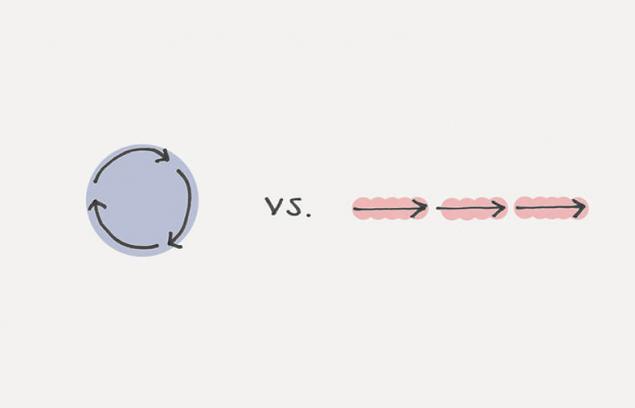614
Mistakes that intelligent people without even realizing it

There is one simple mistake that people often make clever - often without even realizing it.
This error is related to the difference between being in motion and actions. These words are somewhat similar, but they are not one and the same.
That is the point ...

vs. Motion action
Movement - when you're busy with something, but it will never bring you any results. In turn, the action is a type of behavior that is sure to give you the desired result.
Here are some examples:
- If I highlight 20 ideas for writing articles, it will be considered a movement. If I write and publish an article, then this action.
- If I send emails to potential customers and ten tie communication with them, this movement. If they gain anything from me, becoming a real customer, then this action.
- If I'm going to read a few books on the topic of healthy eating, it will move. If I eat only healthy food, it is action.
- If I go to the gym and ask the help of a personal trainer, this movement. If I take the bar and start to squat, it will be considered action.
- If I'm getting ready for the fasted or working on a research project, this movement. When I pass the exam or finish a research project, it will turn into action.
Sometimes the movement is good because it allows you to prepare, strategize and learn something new. However, it itself will never give you the results you want to achieve.
No matter how many times you talk to a personal trainer, this movement will never lead you into shape. Only training - action - will bring you the desired result.
Why smart people are often on the move
If the motion does not lead to results, then why are we doing this?
Sometimes we do it because we need to plan anything or learn. But most of all we are doing it because the movement allows us to feel that we are making progress without risk of failure.
Most of us are experts in avoiding criticism. Defeat and public condemnation - it is bad, so we tend to avoid situations that might lead to such consequences.
And this is the main reason why you just move instead to act. You just want to delay failure.
Yes, I want to be in good physical shape. But I do not want to look stupid in the gym, so I'd better talk to the coach about his experience.
Yes, I want to have more customers. But if I asked something I buy, I can stumble upon failure. I'd rather send a few emails to potential clients.
Yes, I want to lose weight. But I do not want to be the only one who eats healthy food at a dining table. When I get home, be sure to draw up a healthy eating plan.
It is very easy to do things like that, and convince yourself that you are moving in the right direction.
"I'm in talks with four potential customers now take place. It's good. We are moving in the right direction. "
"I found some ideas for his book. Everything goes wrong. "
Movement makes you feel that you are going to result. In fact, you only intend to do anything about it. And when training becomes a form of procrastination, it's time to change something.
Ideas for action
I'm sure there are many strategies for action, but in my case run the following ones:
1. Make a schedule for your actions
Every Monday and Thursday I write and publish new articles. I'm doing this is in the days mentioned. This is my schedule. I love Mondays and Thursdays, because I know that these days will be productive and will certainly get results. It's a good feeling.
I train three times a week - Monday, Wednesday and Friday. I'm not making training plan. I'm not looking for an exercise program. I just train. Action, not a movement.
For present purposes, and lifestyle changes, I think this is the best approach. Make a schedule for your actions, and stick with it.
2. Select the date when you will pass on the motion to action
For some purposes, weekly or daily schedule does not work.
This applies to those cases where you do something that can happen only once: for example, to publish a new book, launch a product to pass an exam or present a major project.
Such things require prior preparation and planning (movement). Also for its completion, they require a lot of action. For example, you can schedule each week and write a chapter of his forthcoming book. However, the preparation of the presentation of the book you will have to spend weeks or months, planning to place its implementation, choosing the institution and so on.
In such situations, I believe it would be better if you set the exact date. Mark it on the calendar. Tell other people about what kind of event should happen in this day.
For large projects or one-time purposes, I think, is the best approach. Force yourself to go on the motion to action by setting tight deadlines.
The kitchen is in the open air - a big plus to testify any size
How to cure diabetes by methods of Tibetan ...
























